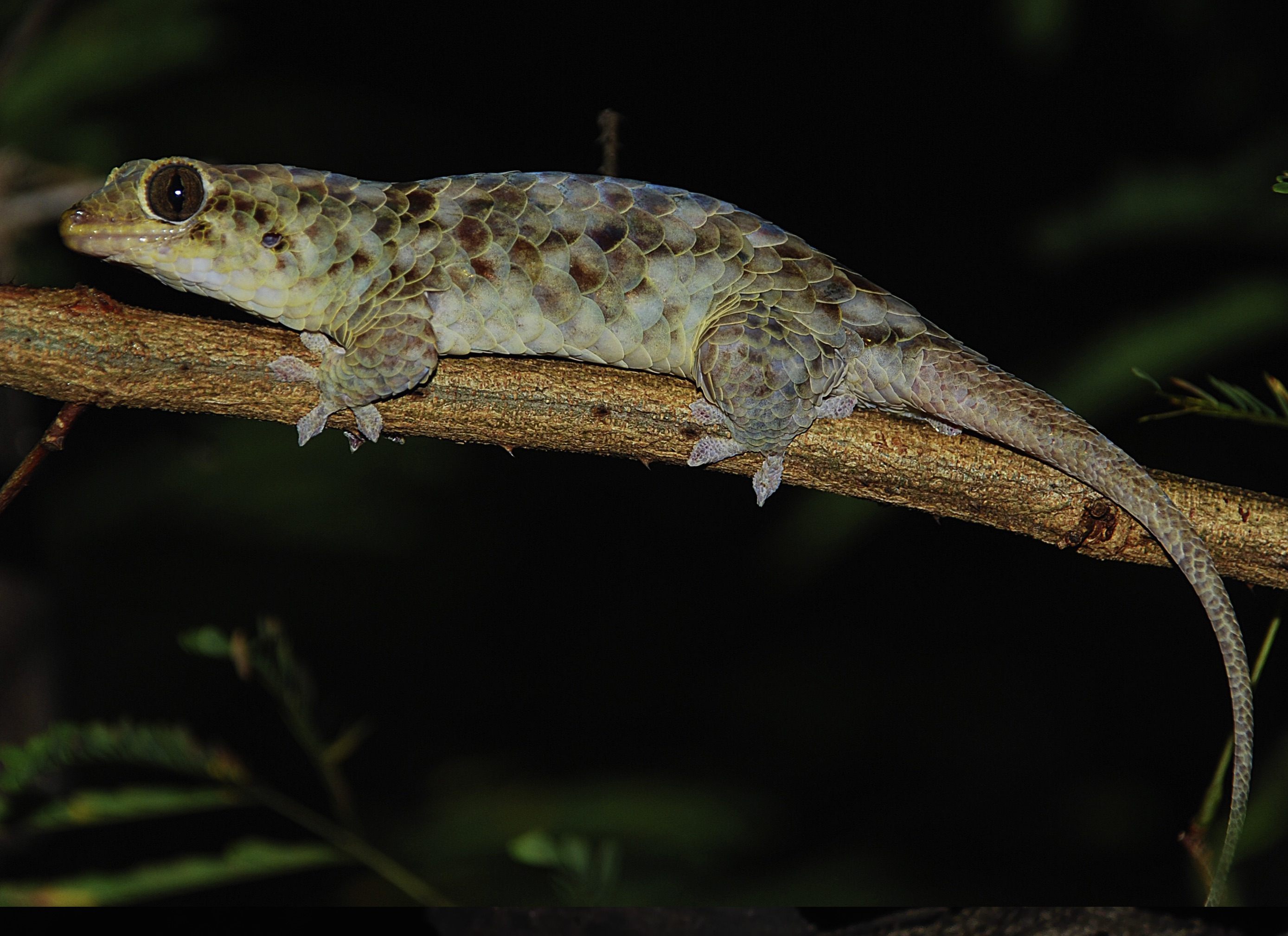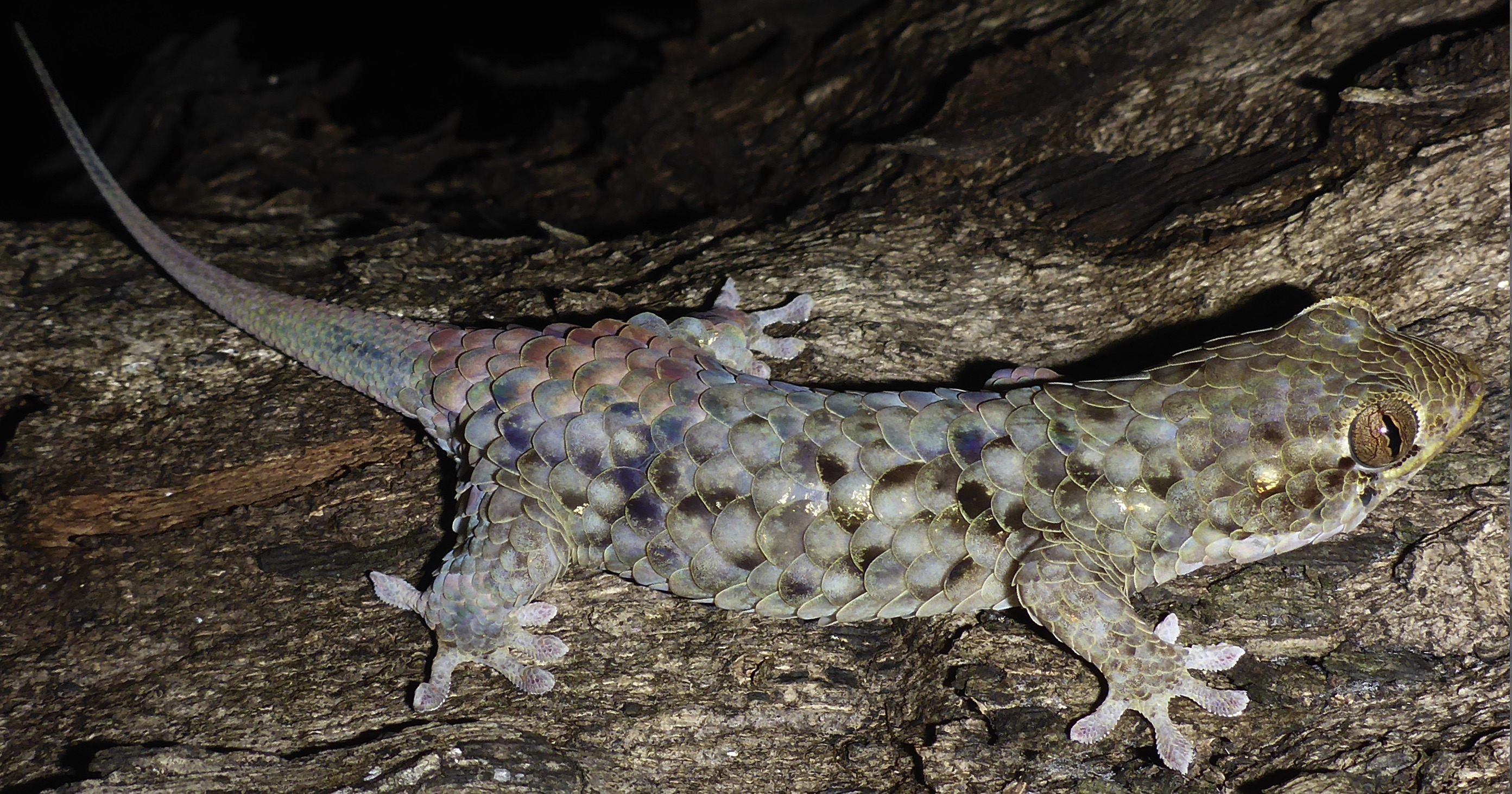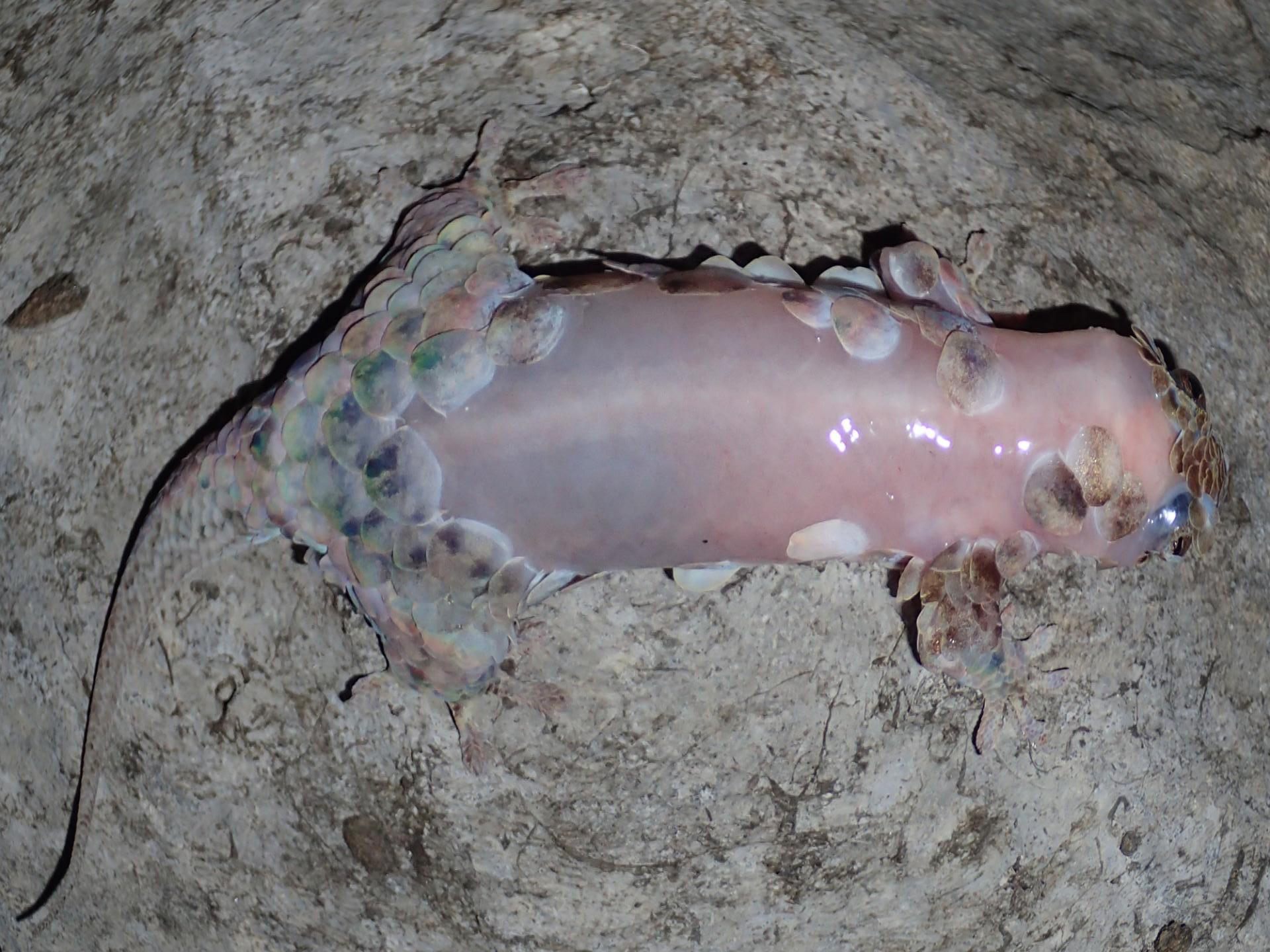Found: A Gecko That Loses Its Giant Scales if It Is So Much as Touched
Do not grab this gecko.

Scientists knew, just by looking at them, that geckos of the newly discovered species Geckolepis megalepis were probably distinct from other fish-scaled geckos. Their scales were just that big—larger than any other gecko’s.
But no one had proven they were a separate species, in part because it was so difficult to catch these geckos without their scales falling off.
Many lizards let go of part their anatomy (tails, etc.) in order to escape predators. But geckos in the fish-scale genus have scales that are adapted to tear off with exceptional ease. Touch one of these lizards, basically, and their scales will fall off. One 19th century researcher resorted to catching lizards with cotton balls—and still lost some scales.
There were a number of species already identified in this genus, but though scientists had observed a number of geckos with particular large scales, they had not yet established officially that they were a distinct species. As a team of researchers reports in a new paper in PeerJ, their suspicions were correct—these geckos are a species of their own.

The scales grow back relatively quickly, with a few weeks, but in the meantime the lizards are (fair warning—this image is not for everyone) showing a lot of gooey skin.

There is another problem with these lizards losing their scales all the time. Often species are identified by the unique patterns of their scales, but because these geckos lose their scales so frequently, the pattern is blurred. The researchers instead had to identify this large-scaled lizards as a new species by identifying unique characteristics in their skull.
As dramatic as it is to lose all your scales so easily, it does seem like an excellent escape strategy. If someone with bad intentions was trying to grab you inappropriately, wouldn’t it be great to just slough of your scales and run free?















Follow us on Twitter to get the latest on the world's hidden wonders.
Like us on Facebook to get the latest on the world's hidden wonders.
Follow us on Twitter Like us on Facebook